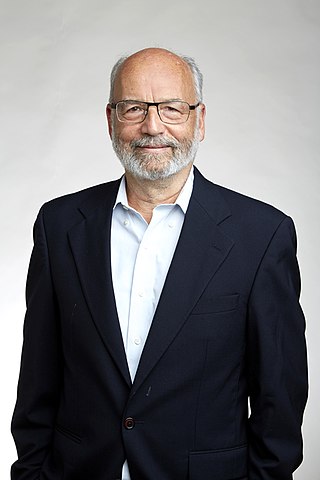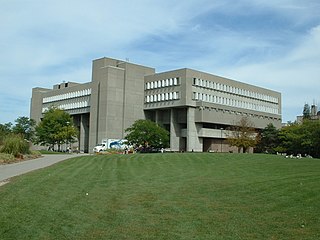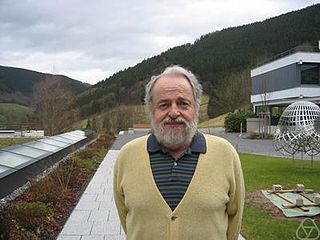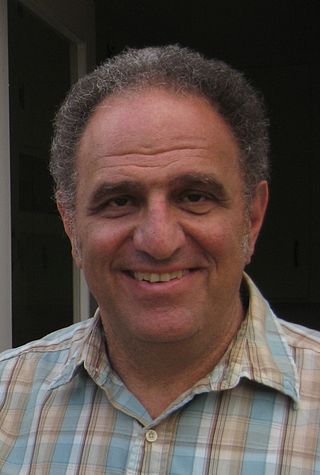
William Thomas TutteOC FRS FRSC was an English and Canadian codebreaker and mathematician. During the Second World War, he made a brilliant and fundamental advance in cryptanalysis of the Lorenz cipher, a major Nazi German cipher system which was used for top-secret communications within the Wehrmacht High Command. The high-level, strategic nature of the intelligence obtained from Tutte's crucial breakthrough, in the bulk decrypting of Lorenz-enciphered messages specifically, contributed greatly, and perhaps even decisively, to the defeat of Nazi Germany. He also had a number of significant mathematical accomplishments, including foundation work in the fields of graph theory and matroid theory.

Adi Shamir is an Israeli cryptographer and inventor. He is a co-inventor of the Rivest–Shamir–Adleman (RSA) algorithm, a co-inventor of the Feige–Fiat–Shamir identification scheme, one of the inventors of differential cryptanalysis and has made numerous contributions to the fields of cryptography and computer science.
Scott A. Vanstone was a mathematician and cryptographer in the University of Waterloo Faculty of Mathematics. He was a member of the school's Centre for Applied Cryptographic Research, and was also a founder of the cybersecurity company Certicom. He received his PhD in 1974 at the University of Waterloo, and for about a decade worked principally in combinatorial design theory, finite geometry, and finite fields. In the 1980s he started working in cryptography. An early result of Vanstone was an improved algorithm for computing discrete logarithms in binary fields, which inspired Don Coppersmith to develop his famous exp(n^{1/3+ε}) algorithm.
Johan Torkel Håstad is a Swedish theoretical computer scientist most known for his work on computational complexity theory. He was the recipient of the Gödel Prize in 1994 and 2011 and the ACM Doctoral Dissertation Award in 1986, among other prizes. He has been a professor in theoretical computer science at KTH Royal Institute of Technology in Stockholm, Sweden since 1988, becoming a full professor in 1992. He is a member of the Royal Swedish Academy of Sciences since 2001.
The Centre for Applied Cryptographic Research (CACR) is a group of industrial representatives, professors, and students at the University of Waterloo in Waterloo, Ontario, Canada who work and do research in the field of cryptography.
Jonathan Michael Borwein was a Scottish mathematician who held an appointment as Laureate Professor of mathematics at the University of Newcastle, Australia. He was a close associate of David H. Bailey, and they have been prominent public advocates of experimental mathematics.
Neal I. Koblitz is a Professor of Mathematics at the University of Washington. He is also an adjunct professor with the Centre for Applied Cryptographic Research at the University of Waterloo. He is the creator of hyperelliptic curve cryptography and the independent co-creator of elliptic curve cryptography.

The Faculty of Mathematics is one of six faculties of the University of Waterloo in Waterloo, Ontario, offering more than 500 courses in mathematics, statistics and computer science. The faculty also houses the David R. Cheriton School of Computer Science, formerly the faculty's computer science department. There are more than 31,000 alumni.
Alfred Menezes is co-author of several books on cryptography, including the Handbook of Applied Cryptography, and is a professor of mathematics at the University of Waterloo in Canada.

Kenneth Ralph Davidson is Professor of Pure Mathematics at the University of Waterloo. He did his undergraduate work at Waterloo and received his Ph.D. under the supervision of William Arveson at the University of California, Berkeley in 1976. Davidson was Director of the Fields Institute from 2001 to 2004. His areas of research include operator theory and C*-algebras. Since 2007 he has been appointed University Professor at the University of Waterloo.
James Greig Arthur is a Canadian mathematician working on automorphic forms, and former President of the American Mathematical Society. He is a Mossman Chair and University Professor Emeritus at the University of Toronto Department of Mathematics.
Stafford Emanuel Tavares is a Canadian cryptographer, professor emeritus at Queen's University. His notable work includes the design of the block ciphers CAST-128 and CAST-256. He also helped organize the first Selected Areas in Cryptography (SAC) workshop in 1994. Since 2003, SAC has included an invited lecture in his honor, the Stafford Tavares Lecture.
Paul C. van Oorschot is a cryptographer and computer security researcher, currently a professor of computer science at Carleton University in Ottawa, Ontario, where he held a Canada Research Chair in authentication and computer security over the period 2002-2023. He is a Fellow of the Royal Society of Canada (FRSC). He is best known as a co-author of the Handbook of Applied Cryptography (ISBN 0-8493-8523-7), together with Alfred Menezes and Scott Vanstone. He is also the author of Computer Security and the Internet: Tools and Jewels from Malware to Bitcoin (ISBN 978-3-030-83410-4). Van Oorschot was awarded the 2000 J.W. Graham Medal in Computing Innovation. He also helped organize the first Selected Areas in Cryptography (SAC) workshop in 1994.
Howard M. Heys is a cryptographer, a retired professor of Electrical and Computer Engineering at Memorial University of Newfoundland. His research includes the design and analysis of stream and block ciphers and efficient hardware implementations of them; he participated in the design of CAST-256 and has published cryptanalyses of such block ciphers as RC5 and CIKS-1. He has served twice as co-chair of the Selected Areas in Cryptography workshop: with Carlisle Adams in 1999, and with Kaisa Nyberg in 2002.

John Friedlander is a Canadian mathematician specializing in analytic number theory. He received his B.Sc. from the University of Toronto in 1965, an M.A. from the University of Waterloo in 1966, and a Ph.D. from Pennsylvania State University in 1972. He was a lecturer at M.I.T. in 1974–76, and has been on the faculty of the University of Toronto since 1977, where he served as Chair during 1987–91. He has also spent several years at the Institute for Advanced Study. In addition to his individual work, he has been notable for his collaborations with other well-known number theorists, including Enrico Bombieri, William Duke, Andrew Granville, and especially Henryk Iwaniec.
David M.R. Jackson is a professor at the University of Waterloo in the department of combinatorics and optimization. He graduated from Cambridge University in 1969. Jackson has been responsible for many developments in enumerative combinatorics in his career, as well as being a mathematical consultant to the Oxford English Dictionary Project.
William Lawrence Kocay is a Canadian professor at the department of computer science at St. Paul's College of the University of Manitoba and a graph theorist. He is known for his work in graph algorithms and the reconstruction conjecture and is affectionately referred to as "Wild Bill" by his students. Bill Kocay is a former managing editor of Ars Combinatoria, a Canadian journal of combinatorial mathematics, is a founding fellow of the Institute of Combinatorics and its Applications.
Michele Mosca is co-founder and deputy director of the Institute for Quantum Computing at the University of Waterloo, researcher and founding member of the Perimeter Institute for Theoretical Physics, and professor of mathematics in the department of Combinatorics & Optimization at the University of Waterloo. He has held a Tier 2 Canada Research Chair in Quantum Computation since January 2002, and has been a scholar for the Canadian Institute for Advanced Research since September 2003. Mosca's principal research interests concern the design of quantum algorithms, but he is also known for his early work on NMR quantum computation together with Jonathan A. Jones.

Robert Tibshirani is a professor in the Departments of Statistics and Biomedical Data Science at Stanford University. He was a professor at the University of Toronto from 1985 to 1998. In his work, he develops statistical tools for the analysis of complex datasets, most recently in genomics and proteomics.

Martin Thomas Barlow FRS FRSC is a British mathematician who is professor of mathematics at the University of British Columbia in Canada since 1992.







